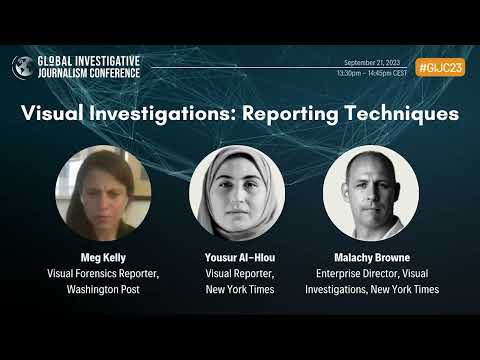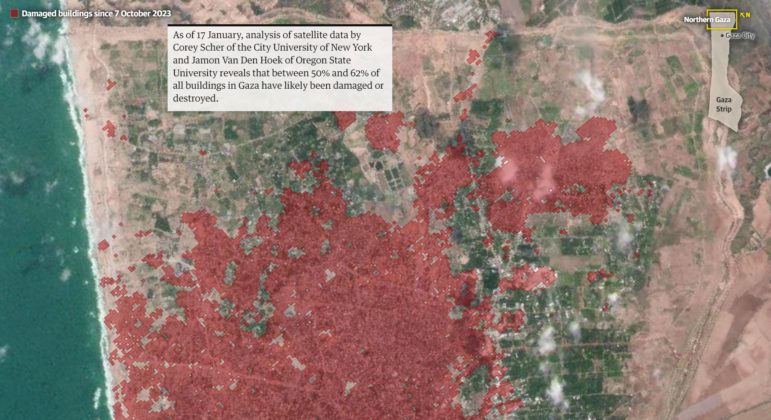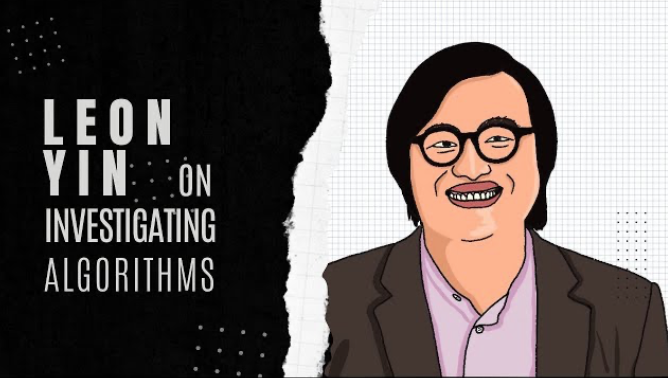
Investigating the Israel Hamas Conflict
Seven months into the conflict between Israel and Hamas, journalists carrying out their work in the region have faced unparalleled challenges. According to the Committee to Protect Journalists, as of April 9th, preliminary investigations show at least 95 journalists and media workers were among the more than 34,000 estimated killed since the conflict began on October 7 — with more than 33,000 Palestinian deaths in Gaza and the West Bank and 1,200 deaths in Israel. For reporters on the ground, the risk to personal safety is unprecedented and accompanied by many logistical obstacles — like a lack of internet access and inability to move freely — while journalists everywhere have had to face a tsunami of disinformation and dubious narratives.
Due to the near-impossible working environment in Gaza, most investigative stories so far have been produced by international media outlets, which have relied heavily on geolocation, the analysis of documents, open source information, and information provided by bloggers and citizens based in Gaza, rather than on-the-ground reporting.
In this GIJN Webinar, three senior investigative journalists shared tips and tools on how to work in such a perilous reporting environment, and techniques for digging into war atrocities.
Sarah El-Deeb has been an Associated Press (AP) journalist since 2000, with extensive experience reporting in the Middle East. She joined AP’s Global Investigative team in 2021 shortly before Russia launched its war on Ukraine and is part of the War Crimes Watch Ukraine project. She is the author of a chapter on finding the missing in GIJN’s Reporter’s Guide to Investigating War Crimes. More recently, she has written investigative pieces covering the Israel-Hamas conflict.
Peter Polack is a research-based designer and software developer with Forensic Architecture (FA), a research agency based at Goldsmiths, University of London, which develops, employs, and disseminates new techniques, methods, and concepts for investigating state and corporate violence. He produces graphical and interactive digital media and recently has worked on two FA investigations: Humanitarian Violence in Gaza and Destruction of Medical Infrastructure in Gaza.
Phil Rees is the Director of Investigative Journalism at Al Jazeera, where he has been since 2013. Al Jazeera has been extensively covering the Israel-Hamas conflict. He also has presented or produced over 100 documentaries and reported on dozens of conflicts — from Colombia to Cambodia to Belfast to Iraq — including in the Middle East. His 2005 book, Dining with Terrorists, “should be compulsory reading for every editor, journalist and politician – before it is too late,” according to The British Journalism Review.
The moderator was Rachel Oldroyd, Deputy Investigations Editor of the Guardian.









